Filecoin Foundation Quarterly Update: October 2024
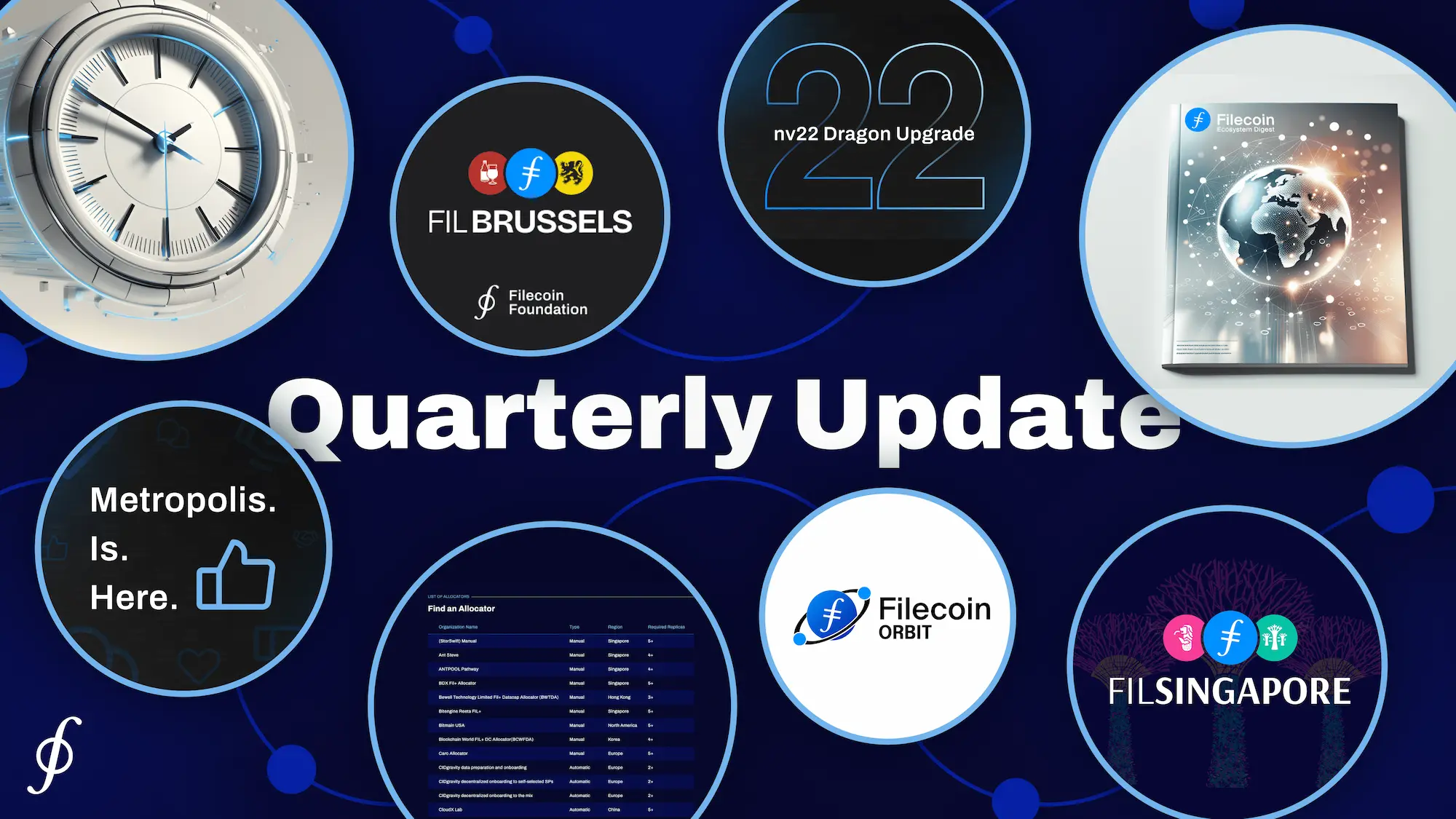
Empowering AI through Decentralization and Innovation
Twenty years ago, Web2 ushered in greater interactivity and collaboration on the web. It also gave rise to a few dominant players across the web who centralized control over networks and information online. Today, artificial intelligence (AI) is at risk of following a similar, centralized path. Major AI developers are locking down their data and code, leaving builders and consumers with little visibility into how models function. The integrity of any AI model relies heavily on transparency around how it’s developed, what data it relies on, and how it operates. Yet, the current trend toward centralization and opacity threatens to erode global trust in AI.
As the AI industry continues to expand, driving an increasing need for data storage and computational power, Web3 tools like Filecoin are uniquely positioned to help decentralize and support AI development. According to a recent Grayscale Research report on the intersection of crypto and AI, “decentralized AI holds the potential to bring these important decisions out from walled gardens and into public ownership.”
By leveraging Filecoin’s infrastructure, developers and organizations can contribute to AI systems without concentrating power in the hands of a few players. This approach fosters innovation while ensuring that AI development remains open and transparent.
This month, Filecoin Foundation (FF) is launching quarterly updates designed to hone in on different trends across our ecosystem. Our first quarterly update explores how the Filecoin network is enabling a more decentralized, open, and transparent AI-driven industry and highlights key developments and milestones from the Filecoin ecosystem over the past several months.

Filecoin is Key Infrastructure for Decentralized AI
At a time when tech giants are investing billions in additional storage infrastructure to account for growing market demand, the Filecoin network is designed to scale, built to accommodate storage in the petabyte or even exbibyte level — that’s more than one quadrillion pages of plain-text type.
Filecoin offers other benefits for AI networks, too, including:
- Immutability and Proof of Storage: A key advantage of Filecoin’s crypto-powered storage network is its built-in immutability, which provides a tamper-proof record or data provenance and usage. For AI, this ensures that records, datasets, or computations stored on the Filecoin network maintain a transparent history, supporting the development of trustworthy and transparent AI systems.
- Transparency, Provenance, and Authentication: An open and robust record of AI data provenance and lineage, and assurance that data has not been tampered with, combats bias and promotes audibility and trust.
- Resilience: Decentralized storage technologies like Filecoin rely on a robust network of storage providers around the globe to store multiple copies of data, rather than large corporations susceptible to single points of failure.
- Customization and Flexibility: Organizations have control over how and where their data is stored, which can be tailored to meet specific compliance and performance needs.
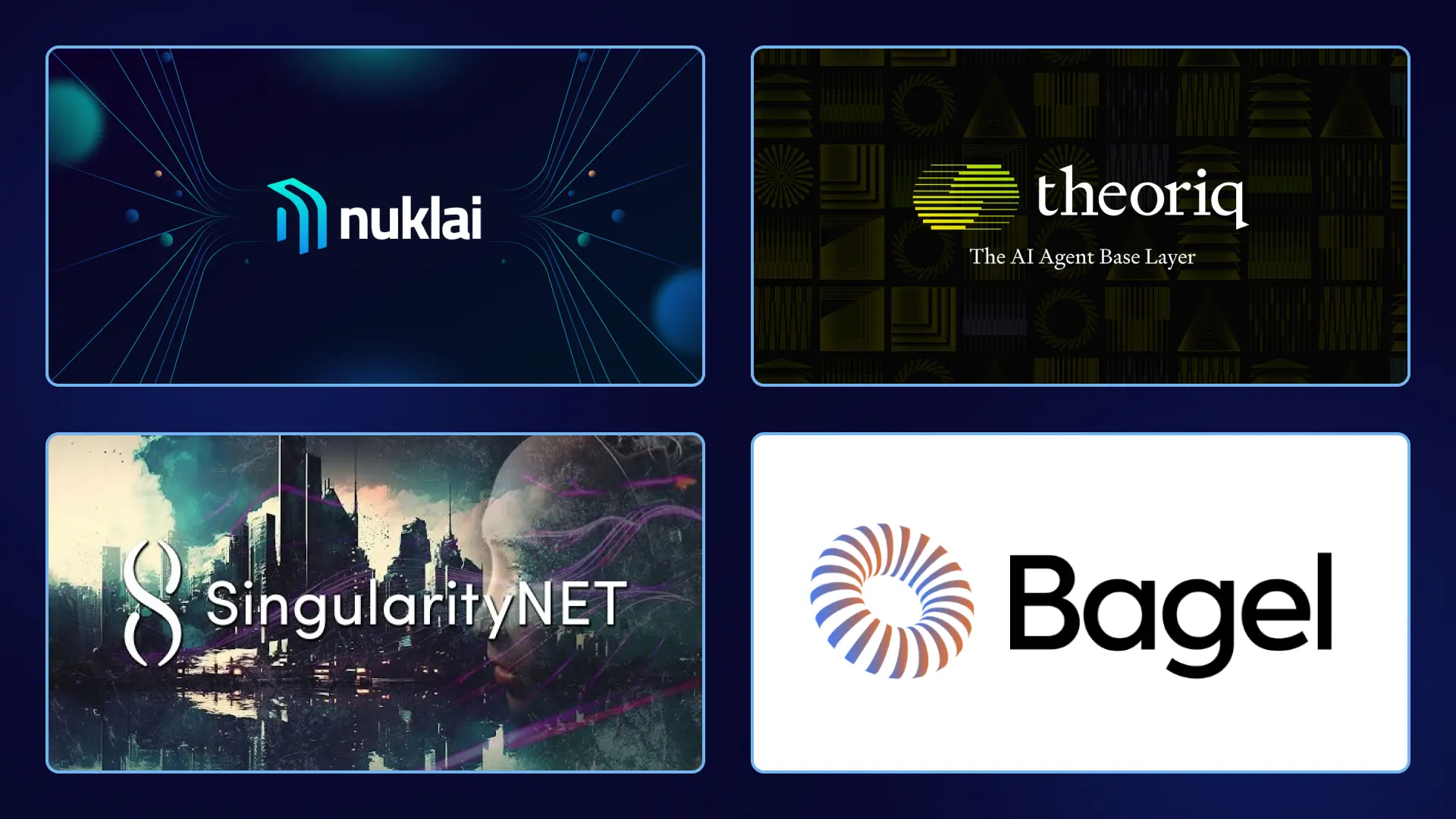
How Prominent AI Organizations Are Leveraging Filecoin
FF recently announced collaborations with SingularityNET, Theoriq, Bagel, Nuklai, and Aethir, each highlighting the versatility of the Filecoin network as decentralized AI infrastructure. The Filecoin networks’ decentralized infrastructure provides the foundational layer that enables AI applications to scale efficiently, securely, and transparently.
- SingularityNET: SingularityNET and FF are collaborating to store metadata on Filecoin via Lighthouse, enhancing the security and provenance of decentralized data storage.
- Theoriq: FF and Theoriq are developing AI agents trained on open datasets stored on Filecoin, including a current project enabling natural language queries for Filecoin docs and a proposed project leveraging declassified CIA datasets for efficient and verifiable research.
- Bagel: In collaboration with Bagel, FF is enabling AI developers to train and store models using Filecoin’s decentralized compute and storage network, optimizing resource utilization for machine learning workloads and driving the adoption of decentralized infrastructure.
- Nuklai: Nuklai has integrated Filecoin to make metadata publicly accessible and is exploring Filecoin as a core storage cluster for enterprise use cases, offering secure, perpetual, and decentralized data storage.
Looking ahead, as new blockchain networks and layer-2s gain traction, Filecoin can be deeply embedded within their architectures, serving as a reliable and trustless storage layer. With the emergence of more AI tools, Filecoin can serve as an ideal storage option to support data verifiability and traceability.
More Highlights from Across the Ecosystem
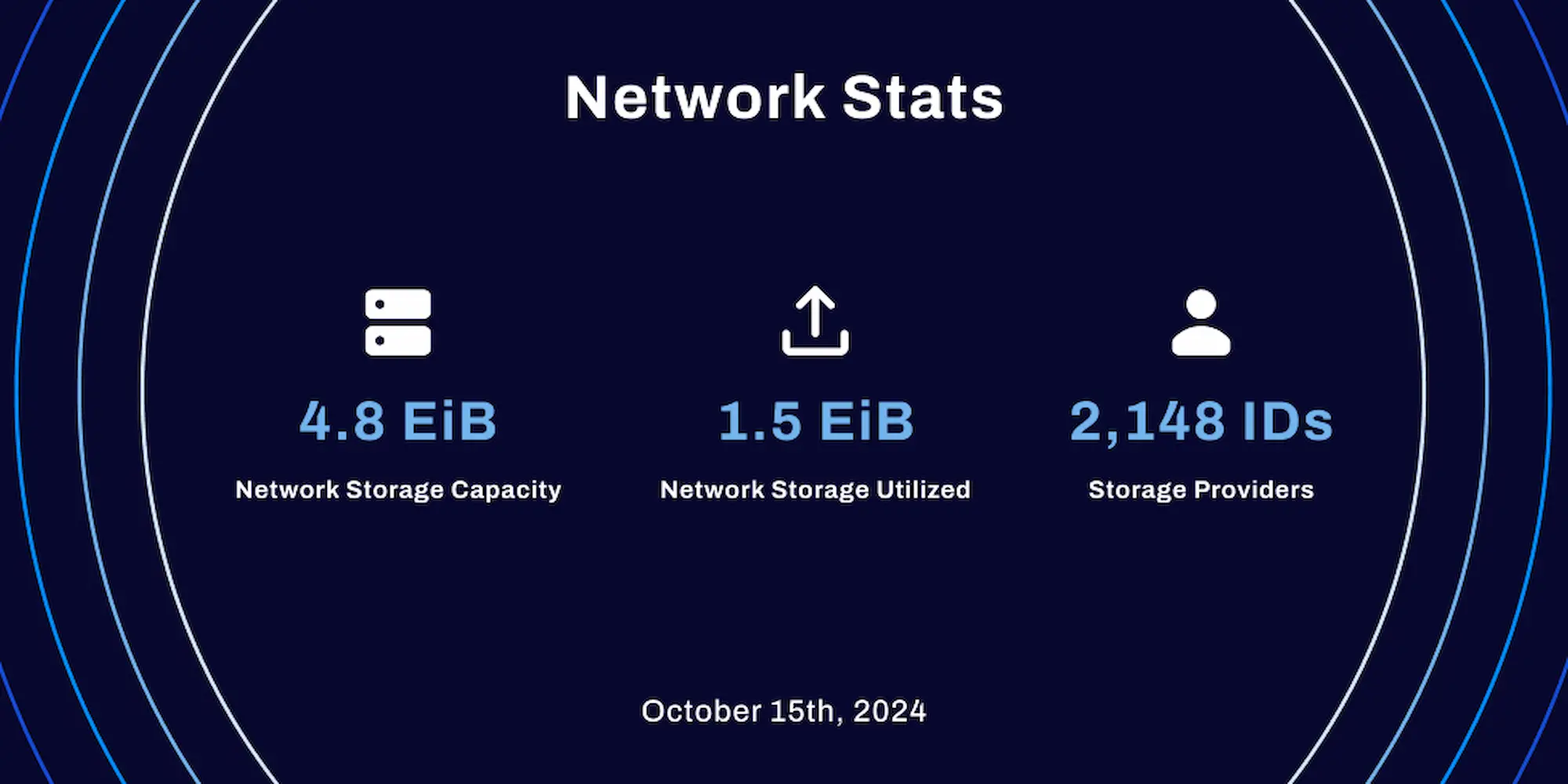
Key Moments
Not Your Parents’ Web Project Finds that the Median Lifespan of a Website is Just Over 2 Years
The "Not Your Parents' Web" project, a collaboration between Internet Archive, Old Dominion University’s Web Science & Digital Libraries Research Group, and FF, reveals critical insights into the fleeting nature of online content. Analyzing 27.3 million archived URLs across 26 years, the study found that the median lifespan of a web page is just 2.3 years, with deep links disappearing even faster. These findings underscore the need for decentralized storage solutions like IPFS and Filecoin, which can preserve web content securely and redundantly, ensuring the longevity of our digital heritage in an increasingly ephemeral online environment.

Fast Finality is Transforming the Filecoin Network
Fast Finality in Filecoin (F3) represents one of the biggest storage-retrieval lifecycle improvements, where new onchain storage contracts from other networks can now interface with Filecoin. Thanks to enhanced network efficiency by reducing confirmation periods for Filecoin storage service events, F3 is a game-changing improvement for Filecoin builders. The upgrade creates a more responsive environment for builders to develop a wider variety of applications that require low latency, L2 subnets such as Interplanetary Consensus (IPC), smart contracts, chain bridges, and more on the network. With development support from Fil Oz, ConsensusLab, and CryptoNet, F3 is making the future of Filecoin fast, secure, and accessible to a wider range of applications than ever before.
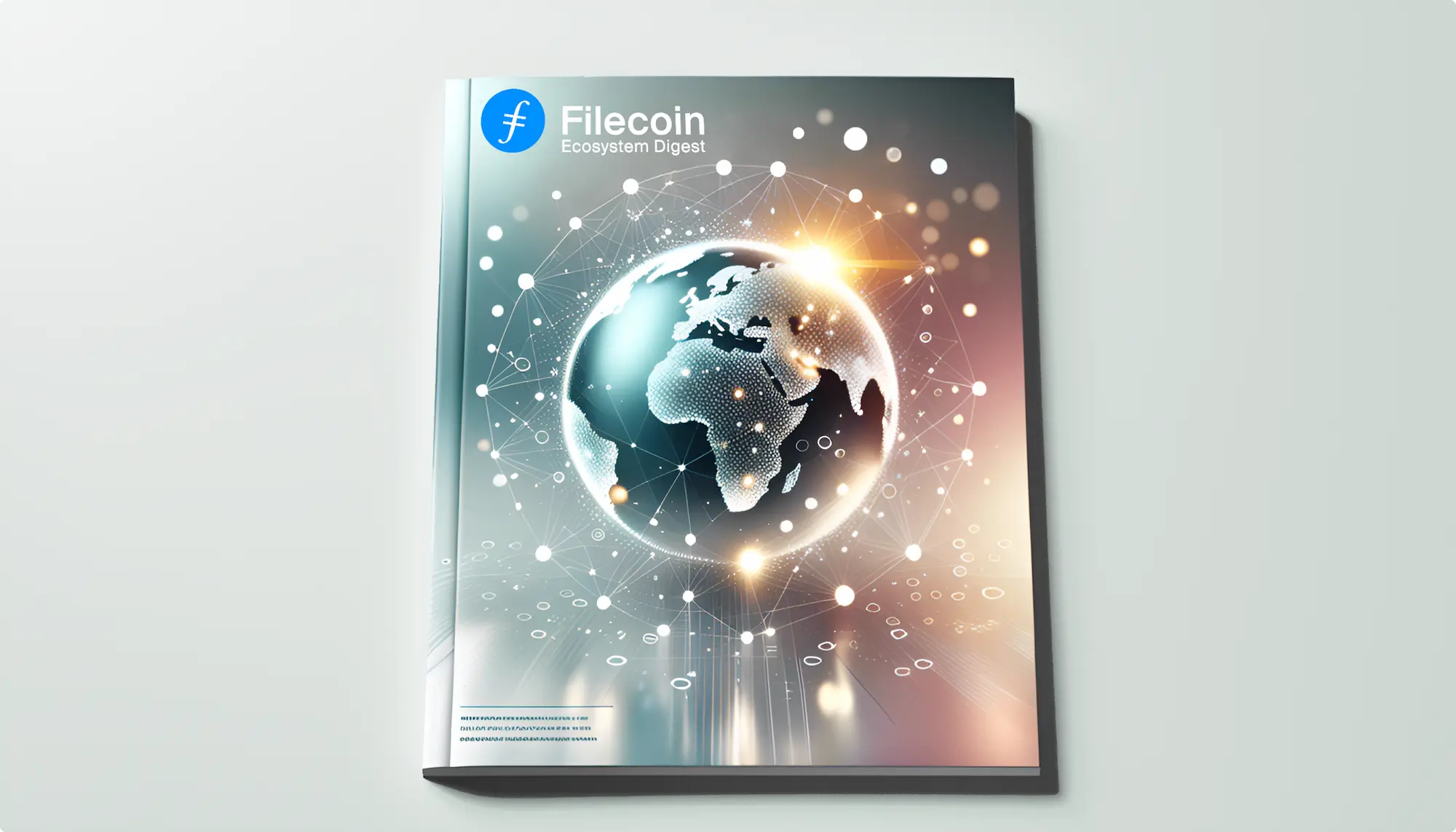
All Systems Go: FF Launches the Filecoin Ecosystem Digest
In August, FF launched The Filecoin Ecosystem Digest, a collection of seven editorial articles authored by individuals from the ecosystem. This inaugural issue explores topics that impact the ecosystem –– from interplanetary resilience to AI-generated media and sustainable data centers. The Digest highlights the voices behind the technology being developed in the Filecoin network –– as we embark on a collective journey towards a decentralized future with expert contributors from FilOz, Numbers Protocol, DeStor, ND Labs, Holon Investments, and Ansa Research.
Meet the New Organizations Developing the Network
The Filecoin ecosystem offers a thriving ecosystem for projects, teams, and companies to build technology for today and the future. Over the past several months, new organizations have launched to support the growth and decentralization of the network, driving change across Filecoin and the web.
FIL-B, FilOz, Akave, Curio, Storacha, Filponto, IPC, ANSA Research, CryptoEconLab, DeStor, and Space Meridian are just some of the new organizations helping to make Filecoin the base layer of the decentralized web.

How Filecoin Developer Grants are Fueling Decentralized Innovation
FF’s Developer Grants Updates series brings news and highlights from the FFDeveloper Grants team. The first issue, published in August, offers a recap of recent program developments, grant pool updates, and the future program outlook while showcasing proposals demonstrating impressive innovation within the community.
Filecoin: Core Web3 Infrastructure
In July, FF announced the Data Onboarding RFP. The program supports teams building paid products focused on embedding Filecoin as core infrastructure in the broader Web3 community. For example, applications that makeg Filecoin the default storage layer for compute, helping scale the archiving requirements for data availability layers and L1s or applications that enabe Filecoin to be the home for decentralized social networks.
Storage Community: The Backbone of the Filecoin Network
Filecoin Storage Solutions to Watch
From user-friendly mobile apps to enterprise-grade data onboarding platforms, the Filecoin ecosystem includes a range of tools designed to cater to different storage needs. Whether you prioritize perpetual archiving, data privacy, or seamless integration with Web3 applications, there's a Filecoin-based solution tailored to your requirements. This vibrant ecosystem empowers users to take control of their data, leveraging the power of decentralization, encryption, and robust storage optimization techniques.
Filecoin storage provider Holon is building modular micro-data centers, which use immersion cooling technology, to provide a green solution for data storage, enhancing security and efficiency while reducing the carbon footprint.
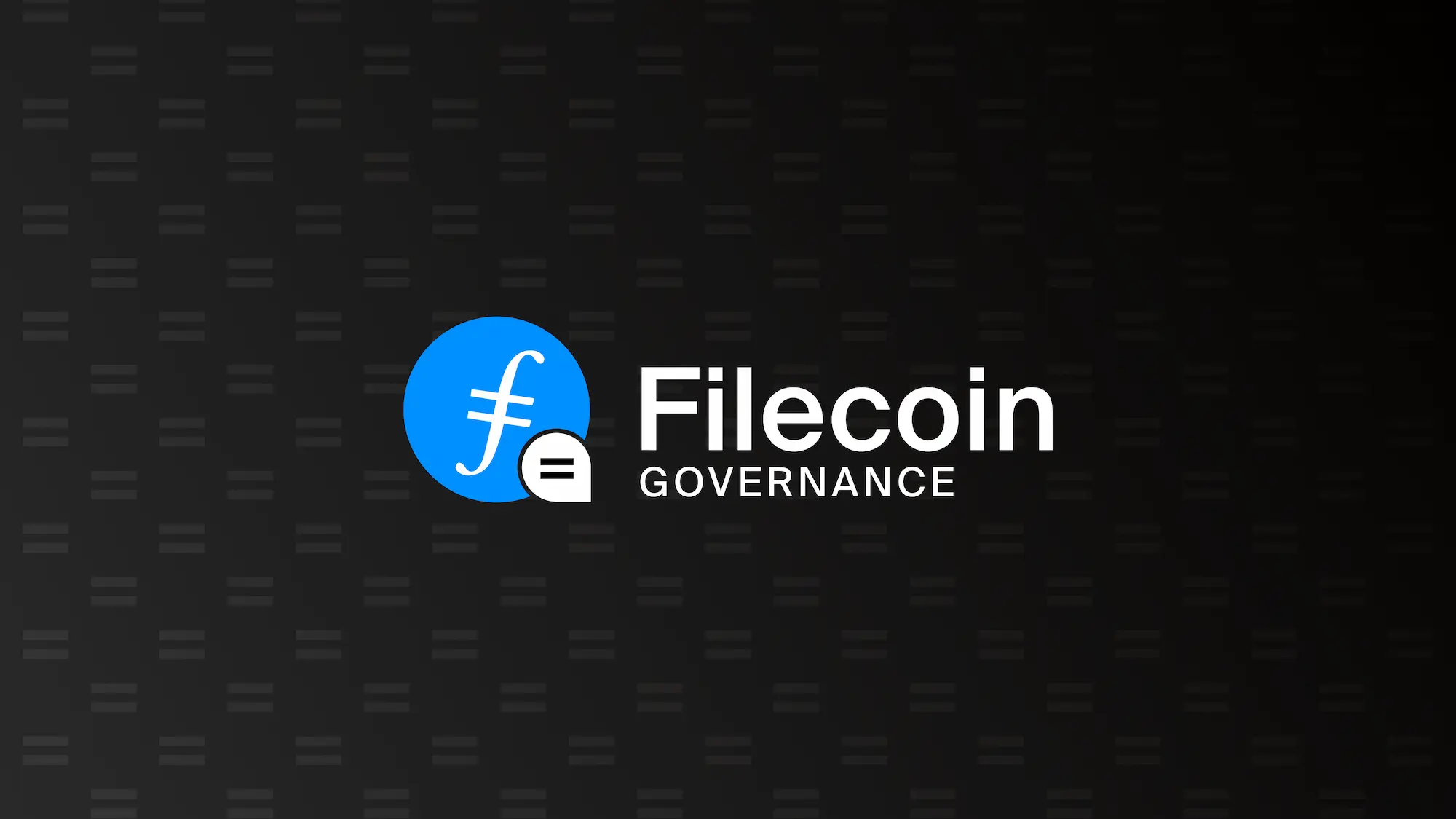
Governance: A Foundation for Decentralized Decision-Making
Two Defining Upgrades for a more Efficient, Flexible Filecoin Network
NV23, codenamed "Waffle", went live on Mainnet on August 6, bringing significant enhancements focused on simplified processes, optimized proof mechanisms, streamlined sector commitments, enhanced cryptographic support, and strengthened security. Several Filecoin Improvement Proposals (FIPs), such as FIP0065, help the network operate more efficiently and lay the groundwork for more flexible data commitment methods. NV22 codenamed "Dragon" introduced a suite of improvements and changes aimed at enhancing the network's efficiency, reliability, and user experience.
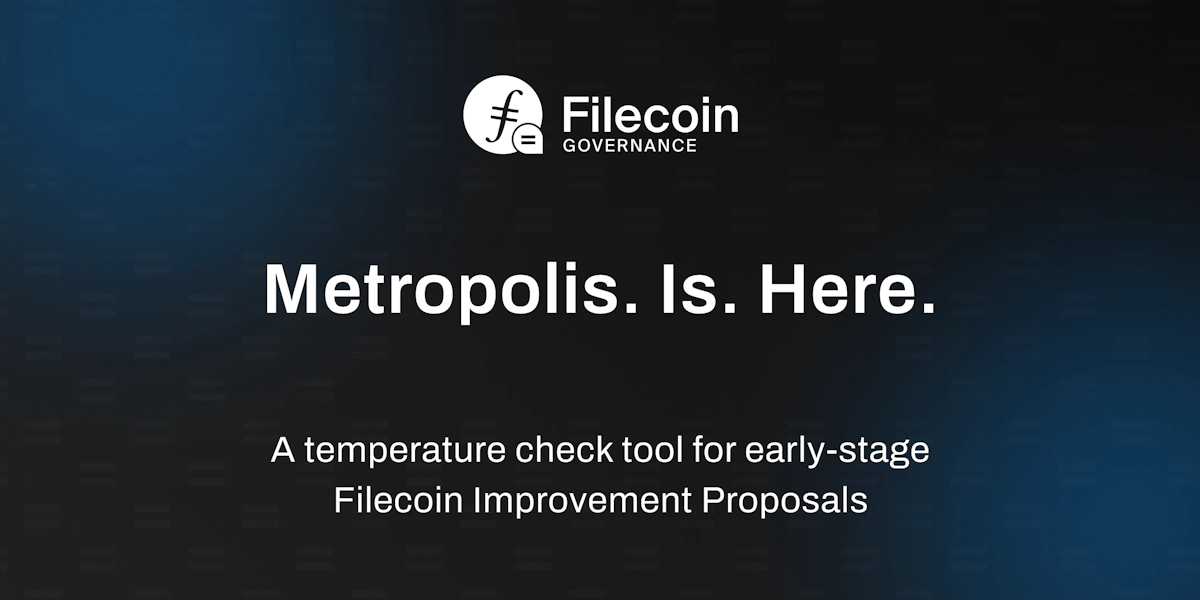
Introducing Metropolis (now Fil Poll)
FF debuted Metropolis, a temperature check and crowdsource polling tool to enhance the network governance process, built in collaboration with Canvas Technologies. Metropolis was created as a fork of the open-source Pol.is tool, which has been used to support digital democracy efforts in countries around the world. With Metropolis, community members can more easily share their opinions on Filecoin Improvement Proposals (FIPs) by signaling their overall feelings toward the proposal, using “positive” or “negative” descriptors. The goal is to provide temperature checks to give FIP authors and Core Devs an earlier indication of overall community preference for certain proposals, which will help governance steward resources as needed for proposals and ideas.

New Community Governance Guilds Connect on Common Goals, Solve Challenges
As the network welcomes new builders and wider adoption, FF introduced three community groups: the Storage Provider Working Group (SPWG), the Developer Working Group (DevWG), and the Data Clients Working Group (DCWG).
- The SPWG holds weekly calls to discuss the latest developments for Filecoin Storage Providers.
- The DevWG is a space to connect with developers, community members, researchers, and others interested in the development of new tools, technologies, and use cases that leverage the Filecoin protocol.
- The DCWG welcomes participants to share their data upload experiences, identify hurdles and solutions for uploading data, and discuss how the Filecoin ecosystem can support data onboarding.
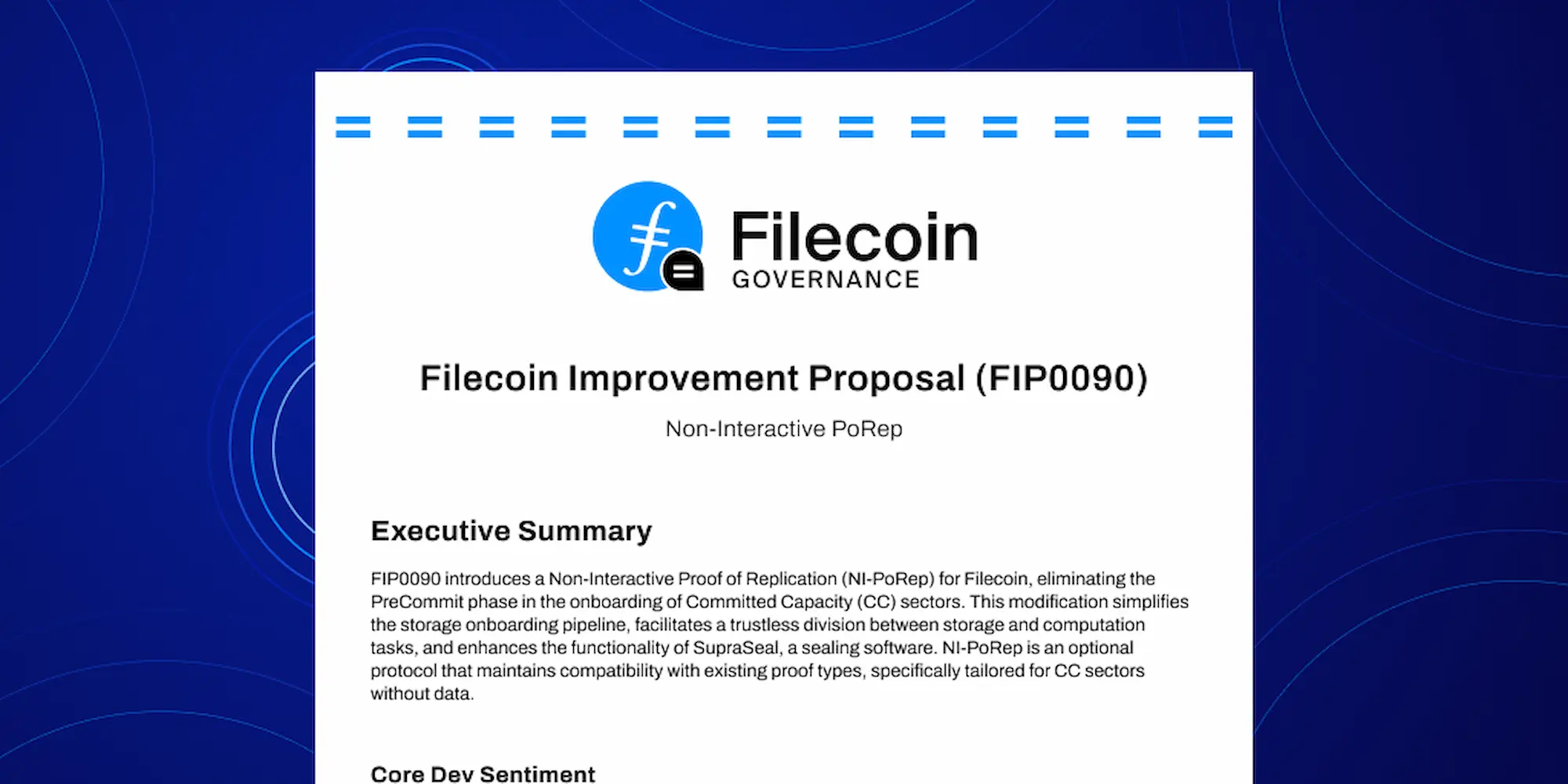
Filecoin Improvement Proposal (FIP) One-pagers Make it Easier than ever to Dive into the FIPS process
FF introduced Filecoin Improvement Proposal (FIP) one-pagers. These one-pagers offer easier and clearer ways to interact with FIPs. FIP one-pagers are high-level summary documents prepared by the FF Governance team. They are intended to provide an overview of recently opened FIPs but should not be considered exhaustive or final representations of the proposals. These summaries are meant to inform the community and reflect the current state of discussion. FIP one-pagers can be found in the Github repository and the Filecoin Governance X.

Filecoin Plus: Scaling Utilization of the Filecoin Network
New Allocator Dashboard to Support Clients' Storage Needs
In October, Filecoin Foundation added an Allocator Registry to the Filecoin Plus (Fil+) website as part of its ongoing efforts to simplify how data clients can connect with prospective Allocators. Users can use the registry to learn more about each Allocator, and utilize its filters to find allocators based on their needs.
Request for Allocators (RFA) for New Pathway Creations
Earlier this year, the Filecoin Incentive Design Lab (FIDL) and FF’s Fil+team announced the Request for Allocators (RFA) to seek out new pathway creations with the goal of encouraging the Filecoin community to develop and run novel meta-pathways. New meta-pathways will help promote faster allocation of DataCap to compliant storage providers and contribute to a growing, healthy ecosystem by better matching the needs of its data clients.

Improved Documentation for Builders
To better support the community and builders looking to engage with the program, the Fil+team has improved the supporting documentation for the Fil+ program by consolidating more information on fil.org/filecoin-plus.
Events: Building the Global Filecoin Community
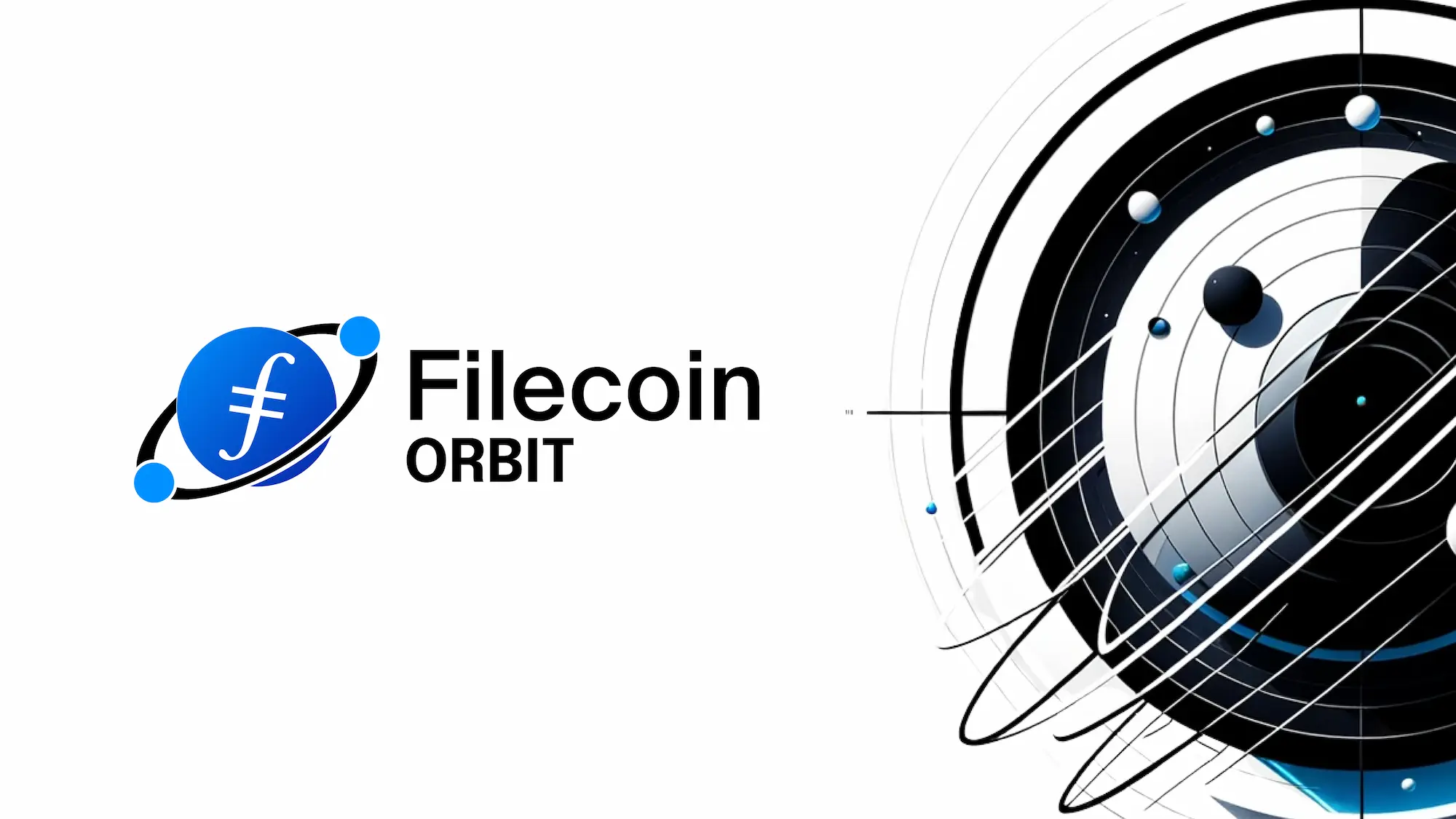
Reimagining Orbit
Filecoin is maturing and more decentralized than ever. FFn refreshed the Orbit Community Program to supercharge the Filecoin community and meet the needs of the ecosystem as it exists in 2024. Orbit will help evangelize Filecoin and its values to new communities; empower Filecoin ecosystem stakeholders; encourage and inspire the community to build and develop on the network; and identify new talent and community contributors.

FIL Singapore
At FIL Singapore, hosted by MetaPals and supported by FF, Aethir announced a collaboration with FF to help power the Filecoin network by securely storing AI and node data with advanced GPU leasing. FIL SG: Web3 Wonderland was the marquee event alongside TOKEN2049, bringing together some of the sharpest minds and most innovative projects across Web3 and AI.
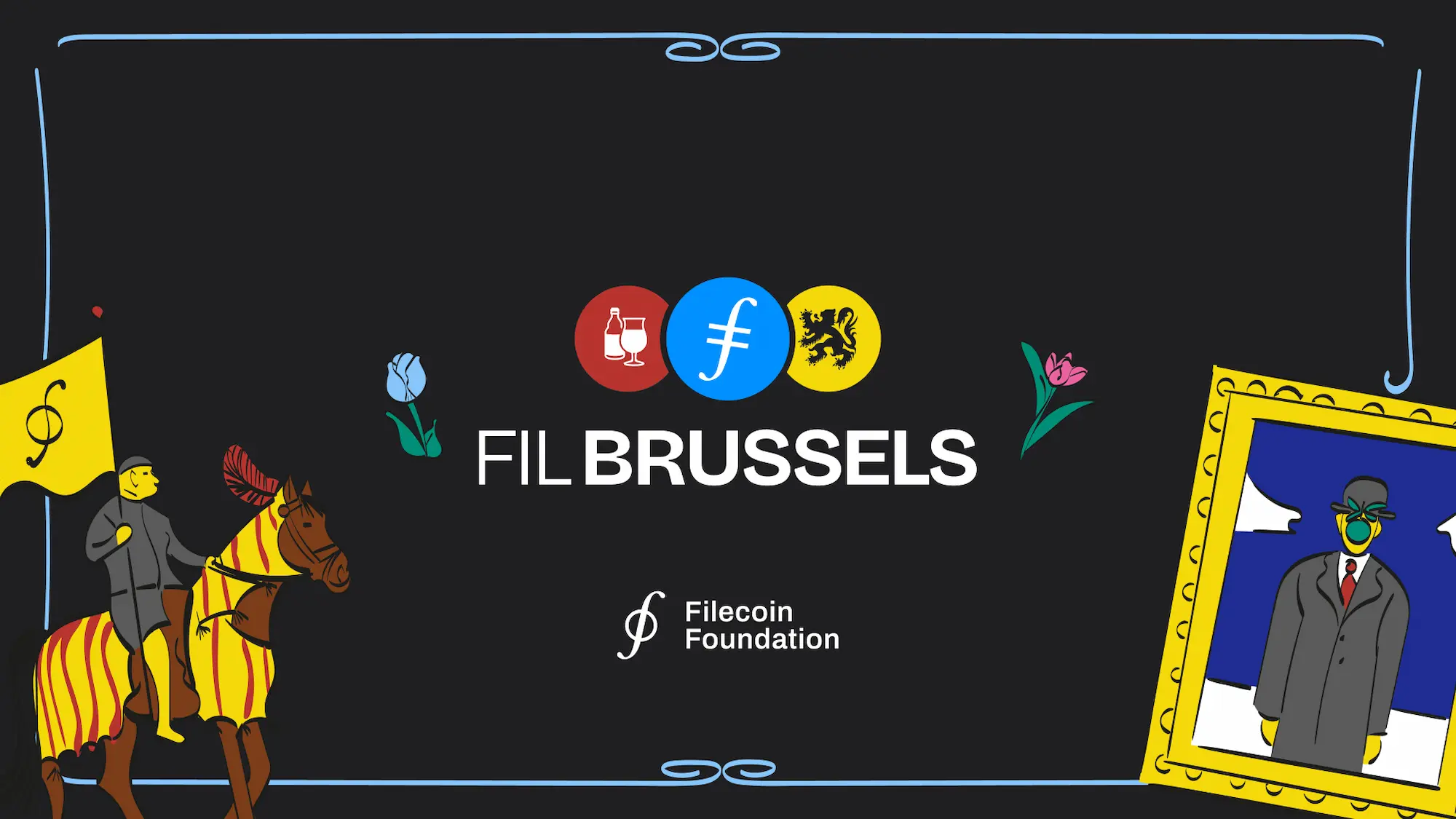
FIL Brussels
At FIL Brussels, organized by FF alongside EthCC, Filecoin cemented its pivotal role as the DePIN backbone for advancements in AI by announcing six prominent collaborations. FIL Brussels brought together hundreds of members of the Filecoin community for an exploration of decentralized AI, DePIN, and compute through a week of insightful talks, hands-on workshops, and networking opportunities.
As the network progresses as core infrastructure for a wide range of applications across Web2, Web3, and emerging technologies like AI, now is the time to get involved and experience why Filecoin is the ideal platform to help decentralize and support AI development. Whether you can join us at FIL Bangkok, the premier community gathering of 2024; attend your local orbit workshop; or choose to work with the organizations in the ecosystem, we invite you to contribute to the network — and the future of the Internet.